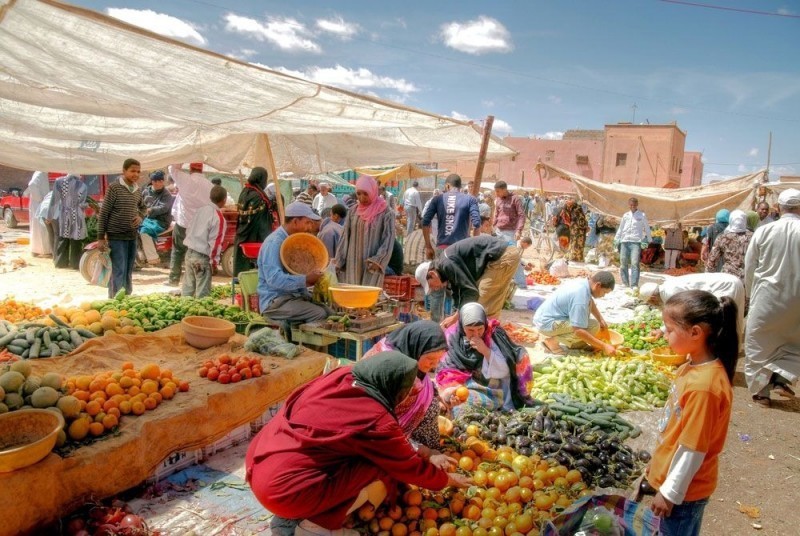Inflation in Morocco to Slow to 0.8%, High Costs Set to Persist

Rabat - Inflation in Morocco is expected to slow to 0.8% in the final quarter of 2024, down from 1.3% in the previous quarter, according to Bank Al-Maghrib (BAM).
While this is a sign of easing pressures, many Moroccans are still struggling with high prices of essential goods.
Fuel and lubricant prices are expected to drop sharply by 12.4% due to lower global oil prices, which has been a key driver of inflation. However, for most households, the high cost of daily necessities like food, meat, and fuel is expected to continue to strain budgets.
Volatile food prices, such as fruits and vegetables, are projected to decrease slightly, falling by 0.6% year-on-year. Yet the cost of staples like meat and dairy remains significantly elevated, forcing many families to cut back on spending or to seek alternative options.
At the same time, core inflation, which excludes food and energy, is forecasted to rise to 2.3%, reflecting persistent price increases in other sectors.
Regulated prices, including utilities and services, are expected to remain steady unless the government intervenes with new measures.
While Morocco’s central bank forecasts progress in bringing inflation under control, many Moroccans continue to feel the burden of rising living costs, especially low-income households whose wages struggle to keep up.
In October, the Consumer Price Index (CPI) fell by 0.3%, according to the High Commission for Planning (HCP). This decline was mainly driven by a 0.5% drop in food prices and a slight 0.1% decrease in non-food goods.
Fruits and meat prices saw the steepest declines, falling by 3.4% and 2.7%, respectively. However, not all food items followed this trend. Vegetables became 1.7% more expensive, oils and fats rose by 1.4%, and beverages like coffee, tea, and cocoa increased by 0.5%.
Despite these reductions, the relief for households has been minimal. Prices for many goods remain prohibitively high, making the cost of daily essentials, from food to energy bills, unaffordable for a large segment of the population. Even as inflation eases on paper, the reality for many families is that the struggle to cover basic expenses persists.

